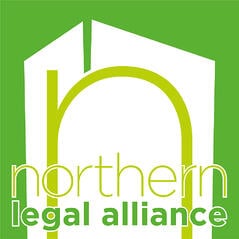Stick to what you know, delegate what you don’t!
You probably hear the phrase all the time – “stick to what you know” – but how good are you at doing that? I think it’s fair to say that most solicitors know this is the best way to approach things. Why would you want to spend time researching an area of law you don’t know much about? Even worse, why take the risk of providing advice which, at best, may not be very beneficial to your client (because you don’t have sufficient previous experience on which to draw) or, at worst, may be professionally negligent.
 Perhaps some sound advice would be to pause for breath the next time a client asks your professional view on something outside your area of expertise. Is there a colleague who may be better placed to advise? Is there another friendly firm who would look after your client for this particular matter, but not poach them for future work? Perhaps you are part of a network such as the Commercial Law Network, HM Connect, CPIN, Lawshare or Fusion Legal. By delegating the work to somebody in the know, you can rest assured the client is getting the correct advice, that you are more likely to have a happy client who will come back to you in future for other matters, that the firm you refer to are more likely to send things your way when they have a conflict/area they don’t feel comfortable advising on, and you may still be entitled to a share of the fees for the work you have referred. A win, win, win, win!
Perhaps some sound advice would be to pause for breath the next time a client asks your professional view on something outside your area of expertise. Is there a colleague who may be better placed to advise? Is there another friendly firm who would look after your client for this particular matter, but not poach them for future work? Perhaps you are part of a network such as the Commercial Law Network, HM Connect, CPIN, Lawshare or Fusion Legal. By delegating the work to somebody in the know, you can rest assured the client is getting the correct advice, that you are more likely to have a happy client who will come back to you in future for other matters, that the firm you refer to are more likely to send things your way when they have a conflict/area they don’t feel comfortable advising on, and you may still be entitled to a share of the fees for the work you have referred. A win, win, win, win!
However, it’s not just legal work that this applies to. Think of everything else that goes into running a successful legal business: IT infrastructure and support, sound HR policies and procedures, compliance with a plethora of regulation (e.g. GDPR), and not least your finance/accounts function. Again, if you are minded to “dabble” in any of these areas without sufficient and up-to-date  knowledge, it could potentially be dangerous for a number of reasons. For example, are you up to speed with the latest cyber fraud tactics? Are you fully aware of what your employees’ rights and responsibilities are from an HR perspective? Or is trying to do your own cashiering going to land you in hot water at a compliance inspection/audit. With all of these examples, you may ‘think’ you know what you are doing, or that you can get by, but do you “know’ what you are doing? If not, the additional time you’re spending on them, not to mention the stress, probably more than justifies delegating to somebody better placed to deal with them, or outsourcing those responsibilities to experienced experts or third-party providers. That way, you can sleep at night knowing things are being done properly, that you are covered from an insurance point of you, and just as importantly, that you can focus on what you do best, whether that be generating new business for your firm, or doing fee earning work for clients. I hope there is some food for thought here, and some take away points to discuss at your next Partners meeting.
knowledge, it could potentially be dangerous for a number of reasons. For example, are you up to speed with the latest cyber fraud tactics? Are you fully aware of what your employees’ rights and responsibilities are from an HR perspective? Or is trying to do your own cashiering going to land you in hot water at a compliance inspection/audit. With all of these examples, you may ‘think’ you know what you are doing, or that you can get by, but do you “know’ what you are doing? If not, the additional time you’re spending on them, not to mention the stress, probably more than justifies delegating to somebody better placed to deal with them, or outsourcing those responsibilities to experienced experts or third-party providers. That way, you can sleep at night knowing things are being done properly, that you are covered from an insurance point of you, and just as importantly, that you can focus on what you do best, whether that be generating new business for your firm, or doing fee earning work for clients. I hope there is some food for thought here, and some take away points to discuss at your next Partners meeting.
Gregor Angus,
Senior Business Development Manager, The Cashroom


